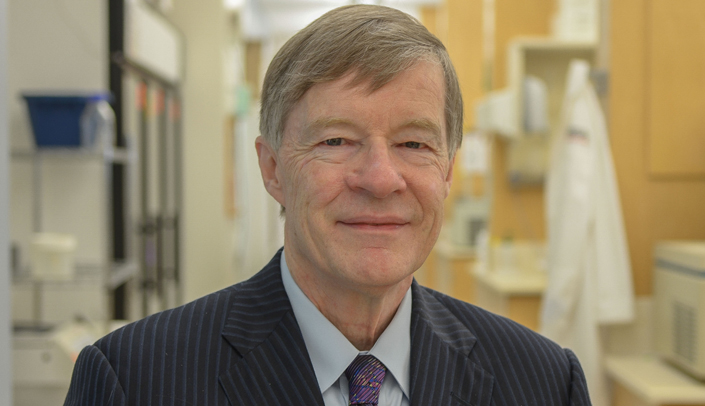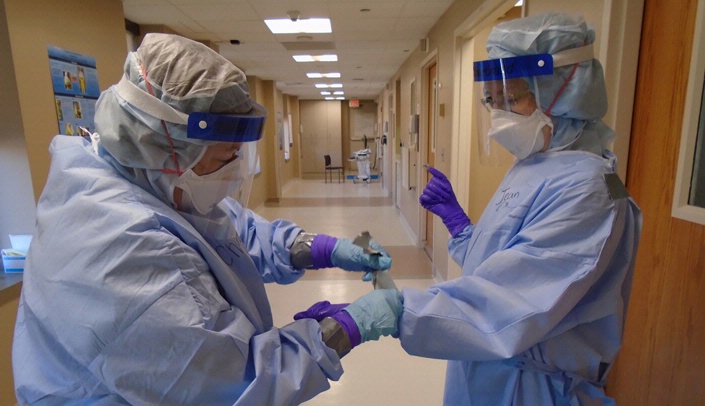UNMC/Nebraska Medicine, in collaboration with Emory University in Atlanta and Bellevue Hospital Center in New York City, have been awarded a $12 million grant by the U.S. Department of Health and Human Services (HHS) to establish and co-lead the nation’s National Ebola Training and Education Center (NETEC).
The three institutions will partner with the HHS Office of the Assistant Secretary for Preparedness and Response (ASPR) and the Centers for Disease Control and Prevention (CDC) to support the training of health care providers and facilities on strategies to manage Ebola and other emerging infectious diseases.
UNMC and its primary clinical partner, Nebraska Medicine, will receive $5.1 million of the $12 million federal grant – the largest share of the three collaborating institutions.
|
“I also want to thank our state’s congressional delegation for their support and work in helping us receive this significant designation.”
During the Ebola outbreak of 2014, UNMC/Nebraska Medicine was recognized as a national asset and referred to as the “gold standard” for treatment and development of safety protocols to handle Ebola and highly infectious diseases.
UNMC/Nebraska Medicine has the largest operational biocontainment unit in the nation.
UNMC/Nebraska Medicine and Emory University have worked with the CDC since December to train more than 460 health care workers from 87 health care systems, including 37 designated Ebola treatment centers, on all aspects of infection control and patient care for individuals with Ebola.
 |
Philip Smith, M.D., medical director of the Nebraska Biocontainment Unit at Nebraska Medicine and professor, UNMC College of Public Health, is principal investigator of the UNMC/Nebraska Medicine grant from HHS. |
The new National Ebola Training and Education Center will expand on the success of this initial work and offer state health departments and health care facilities additional access to the clinical expertise and training capabilities offered by these institutions.
“The national center contributes to our nation’s health security by developing and teaching evidence-based practices of experienced providers and health care institutions in caring for patients with Ebola and other serious infectious diseases,” said Nicole Lurie, M.D., assistant secretary for preparedness and response for HHS. “While this training starts with Ebola, it also will help the health care community deal with other serious infectious diseases in the future.”
CDC Director Tom Frieden, M.D., said the ongoing Ebola epidemic in West Africa is proof “that a threat anywhere can be a threat everywhere; the United States must continue to prepare.
“Hospitals are often the first place where a new disease threat is recognized. This new center will help our hospitals and health care workers prepare to handle new threats and safely care for patients.”
